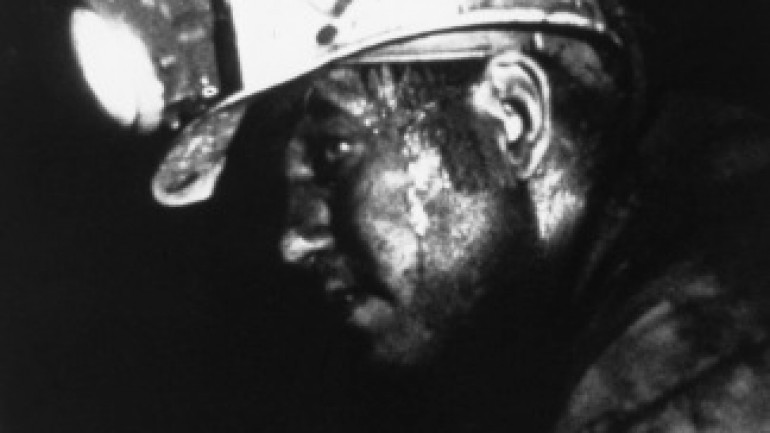A man crouches and pokes at what first appears to be a wad of chewed-up pink bubble gum on the ground. “That’s what a scab will do to ya, by God,” he says, his voice quavering with emotion. The pink wad is brain tissue from a striker shot in the head by a strikebreaker. That’s one of the harsh realities of Harlan County USA. Barbara Kopple’s documentary camera looks at this forgotten corner of 1970s America, the site of some of the bitterest labor violence in American history. It’s hard to believe that some 40 years after the Depression, there were parts of Appalachia that were hardly better off than they were in the 1930s. The care-worn faces of the miners and their families speak volumes.
They’re the tough, proud faces of people struggling to make a living the way that their parents and grandparents did in generations past. Kopple skillfully weaves archival footage and traditional labor songs through the film to give a historical perspective to the strike against Eastover Mining Company. Above and beyond the labor issues, the film takes a hard look at the living conditions, health issues, and poverty faced by Harlan’s residents, the human toll that goes along with the mining industry. The tense confrontations between Eastover’s slimy security goons and the unionizers are particularly gripping, with the threat of violence hanging thick in the air. Sometimes ugly, always absorbing, this is an important, enlightening social record, one that serves the highest calling of the documentary filmmaker’s art.
This film documents the coal miners’ strike against the Brookside Mine of the Eastover Mining Company in Harlan County, Kentucky in June, 1973. Eastovers refusal to sign a contract (when the miners joined with the United Mine Workers of America) led to the strike, which lasted more than a year and included violent battles between gun-toting company thugs/scabs and the picketing miners and their supportive women-folk. Director Barbara Kopple puts the strike into perspective by giving us some background on the historical plight of the miners and some history of the UMWA.
Barbara Kopple’s Academy Award–winning film unflinchingly documents a grueling coal miners’ strike in a small Kentucky town. With unprecedented access, Kopple and her crew captured the miners’ sometimes violent struggles with strikebreakers, local police, and company thugs.




Available at http://www.snagfilms.com/films/title/harlan_county_usa
I’d say Ron Paul probably doesn’t spruopt such bills, because he doesn’t spruopt government interference in peoples lives if they’re law abiding and don’t hurt anyone else by their actions.Ron Paul has consistently voted no to any tax increases and stands on a platform of small government as prescribed by the constitution, meaning less regulation and more freedom for people like you.I’m not sure he’s spoken specifically on this issue, but we can be confident that he’s be more in favour of freedom and respect for private property than any other presidential candidate. +5Was this answer helpful?
Another doc that has been removed but not deleted!
Such a sad movie. The summary is well written and spot-on. I have relatives in WVa who have worked in the mines, been exploited, and eventually died prematurely of black lung. One of the most important American documentaries ever made. Should be required viewing in our schools… Hard to believe the living conditions those poor people were still enduring in the mid-1970’s. On a positive note, the soundtrack kicks a@#, if you like country music… Those are real regional American songs, full of strong emotion!
at what point in time doesit show himpoking the piece of brain?
It’s around the 1:20 mark.
Amazing documentary, I have been watching documentaries for years on this site, this is the first film that has inspired me to comment. Loved the discussion between the NY police officer and the miner. Apparently this film won the Oscar for best documentary 1976, well deserved.